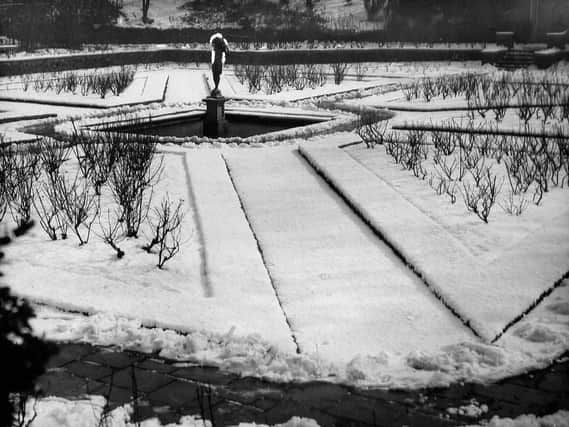Readers' letters - March 12


I, along with many others of my age group of 80-plus, have tended to mock the wimpish behaviour of today’s people who close schools, shut down railways and generally give in to a bit of snow. On reflection, I can now see why some of it happened. I was brought up in a home with no central heating and went to a village school which also had no central heating. Only villagers and outlying farms sent children there and we were much hardier. Nowadays, children are bussed miles to school. Railway signalling was done by mechanical means which were less subject to failure and steam engines were much heavier than today’s trains, and a snow plough on the front of a steam engine cleared the snow. Councils were also more local so had staff out clearing paths and roads. Generally speaking, people worked locally and did not have to travel so many miles to their jobs and were more able to walk to work. Finally, the dedication shown by those who did walk in to vital jobs was more apparent back then.Peter HydeAddress supplied
Advertisement
Hide AdAdvertisement
Hide AdNo point fighting climate changeWhen it comes to the global warming and carbon dioxide debate, it’s very difficult for Joe Public to determine just where the truth lies. The gloom merchants have been predicting a virtual hell on earth if we don’t dramatically reduce our current carbon dioxide emissions. However, a recent paper by an eminent Australian geologist, a professor emeritus of earth sciences at the University of Melbourne, paints a somewhat different picture. This is what he claims:-“Take the volcanic eruption in Iceland, for instance.“Since its first spewing of volcanic ash, it had, in just four days, negated every single effort mankind has made in the past five years to control CO2 emissions on our planet. “Of course, you all know about this carbon dioxide that we are trying to suppress – it’s that vital chemical compound every plant requires to live and grow and to synthesize into oxygen for us humans and all animal life.“I know, it’s very disheartening to realise that all of the carbon emission savings we have accomplished while suffering the inconvenience and expense of driving hybrid and electric vehicles, buying fabric grocery bags, throwing out all of our non-green cleaning supplies, selling our SUV, holidaying at home instead of abroad, replacing all of our £1 light bulbs with £5 light bulbs...well, all of those things we have done have all gone down the tubes in just four days.“And there are around 200 active volcanoes on the planet spewing out this at any one time – every day.“When the volcano Mt Pinatubo erupted in the Philippines in 1991, it spewed out more greenhouse gases into the atmosphere than the entire human race had emitted in all its years on earth. “Yes, folks, Mt Pinatubo was active for over one year – think about it.“Of course, I shouldn’t spoil this ‘tree-hugging’ moment and mention the effect of solar and cosmic activity and the well-recognised 800-year global heating and cooling cycle, which keeps happening despite our completely insignificant efforts to affect climate change.“I do wish I had a silver lining to this volcanic ash cloud saga, but the fact of the matter is that the bush fire season across the western USA and Australia this year alone will negate efforts to reduce carbon in our world for the next two to three years. And it happens every year.“Also remember that various governments have tried to impose whopping carbon taxes on their people, on the basis of the bogus ‘human-caused climate-change scenario.“Isn’t it interesting how they don’t mention ‘global warming’, but ‘climate change’ – and do you know why? It’s because the planet has cooled by 0.7 degrees in the past century.“Also, just keep in mind that we might yet have an Emissions Trading Scheme – a whopping new tax – imposed on us that will achieve nothing except to make us poorer.”So, who we do we believe? I’m inclined to go along with the professor’s views. How about you?Derek Rogerson via email